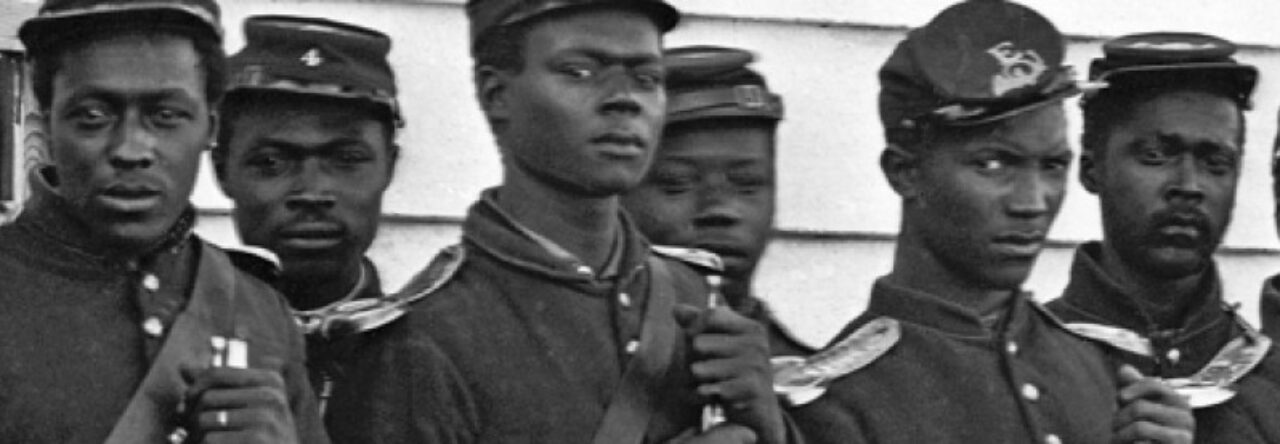The idea which I’ve been wrestling with today is state’s rights. Here’s how the state’s rights argument has played out for me in the past.
The statement goes something like this. The Civil War wasn’t about slavery. No right thinking person could then or can now defend the institution. It was a moral wrong in 1619 when Dutch traders bartered slaves for ship repairs. It was a moral wrong during our founding and the founders knew it. It was wrong in 1861.
But then the statement takes a left turn:
The war was really fought over the rights of the states. A states right to secede. A states right to manage its economy as it saw fit. The right to an ethos and lifestyle unique to its people and culture; the noble Lost Cause.
When my student’s raise state’s rights, I send them to see Mr. Alexander Stephens of Georgia. Stephens served in the House of Representatives with Mr. Lincoln. He became the Vice-President of the Confederacy when Georgia secedes and will deliver what has become known as the Cornerstone Speech, a portion of which is excerpted here:
“Our new government is founded upon exactly the opposite idea; its foundations are laid, its corner-stone rests upon the great truth, that the negro is not equal to the white man; that slavery—subordination to the superior race—is his natural and normal condition. This, our new government, is the first, in the history of the world, based upon this great physical, philosophical, and moral truth.”
Alexander Stephens, March 21, 1861
Stephen’s thesis is that the Confederacy’s Constitution is stronger than the Union’s because slavery is the manifestation of a ‘physical, philosophical and moral truth’ on which the federal document is silent.
It makes a pretty persuasive argument for the cause of the war: The second in command of the South says its about slavery. The challenge for me, is that today’s lecture muddies the water a bit.
The concept of states rights predates the Civil War, but I don’t know if I’ve ever really given it its due. In class, we breeze through the Virginia and Kentucky Resolutions and Calhoun taking up the Jefferson/Madison mantle. We look at Dred Scott as a case about slaves as citizens without looking at Chief Justice Taney’s argument about federal supremacy in this case and Abelman v. Booth.
The argument I’m wrestling with is this: if Wisconsin can cry states rights in 1859, why can’t South Carolina in 1860? Dr. Pinsker’s suggestion is that states rights is a mean’s to an end–the end being slavery. But I’m struggling with how cut and dry that feels.




Mike Kleiner
Great post. I would add Henry Hammond’s “mudsill” speech, which along with Stephens’ later quote serves as some powerful insight into pro-slavery thought. Or, at least, they demonstrate the elaborate self-rationalizing southerners engaged in to justify secession.
jmklax
I believe that there is a 1999 work by Forrest McDonald entitled States Rights and the Union challenges the idea put forth by Gallagher and others that the idea of states rights was created “out of thin air”. According to DiLorenzo (The Real Lincoln) the concept of of states rights has a long tradition and did “not originate in the mind of a worn out and elderly General Jubal Early” . Thanks for your post…
Sharolyn Griffith
Dave, great post. I learned to stress the Cornerstone Speech after my days at the Presidential Academy six years ago. It has been an important document to use, and the students can really make the connection to the cause. I was told, by the way, that Stephens denied saying this years later, stating that he was misquoted, but I have not found that source (I didn’t try very hard).
I also like to use Calhoun’s “Positive Good” speech, although that is from the 1830s, and the Declaration of the Causes of Secession are even more critical. The war started because the South seceded, so why not say why they did? I also like to look at Apostles of Disunion by Charles Dew for the arguments in the border state legislative assemblies, where commissioners for secession went to try to convince them to secede. Virginia’s is particularly interesting.
Ewan
Why can’t it be both? What if we look at the ACW as both a struggle over the future of chattel slavery and a struggle over States’ Rights? Isn’t it possible to admit that the Southern states had the legal right to exercise reserved powers (10th Amendment) and even to secede, while agreeing that they seceded mainly in order to preserve slavery? Why does one side have to be ‘right’ and the other ‘wrong’? What if both sides were wrong? What if the war was a colossal mistake, a horrific waste of human life that could have been avoided?
Are you familiar with ‘The Blundering Generation”?